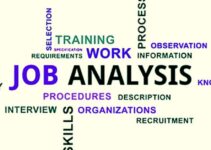Introduction
Writing an effective job description helps you to market your company and attract the attention of potentially qualified candidates for the job. The key to writing a compelling job description is to add sufficient details so that the reader would fully understand the roles and responsibilities while keeping the content concise. You have to find a balance between the details and the conciseness. Today, we’ll discuss how to write a job description.
What is a Job Description?
A job description is the summary of the title, duties, activities, responsibilities, skill, and qualification that a person should have in order to perform the role. It also comprises others details like salary & benefits, culture, company mission, and working conditions that the company offers to its employees.
The job description should provide sufficient information for the readers so that they would find whether they’re on the criteria or not. According to an estimate, 52% of job seekers say that the quality and compelling of the job description impact their decision to apply for the job. However, the JD shouldn’t provide minor details like how/when/what to perform the job; it gives the company flexibility to make changes.
The supervisor and the employees collaborate in order to write the job description, and it requires the approval of the supervisor.
How to Write a Job Description
It’s time to discuss the component of the job description and how to write a job description. Some of the main elements of the job description are as follows;
Job Title
The job title is a short description of the work relevant to the scope of the job, purpose, and content. It should be brief, precise, and correctly describe the role. According to an estimate, 36% of job seekers search for jobs with a specific job title. Some of the main job titles are;
- Manager Custodial Services
- Manager Desktop Services
- Instructional Designer
- Budget Analyst
- Grant Accountant
- Facilities Planner
- Director of Student Health Services
- Associate Registrar
- Associate Director Disability Services
- Archivist
Summary & Job Purpose
Job summary or job purpose is an overview of the company, roles & responsibilities, company’s expectations, and roles and responsibilities. It’s to give an idea why the company is offering the job.
Duties & Responsibilities
It comprises of roles and responsibilities attached to the job and the main functions that the potential candidate has to perform. Some of the main elements that would occupy the employee’s time that you should consider are as follows;
- List of responsibilities required by the job and has nothing to do with the candidates’ capabilities
- Nature of contact and interaction with other people inside and outside the workplace
- Type and level of financial and budgetary responsibilities
- Recognize Direct & Indirect responsibilities
- Decision-making areas that impacting
- Your focus should be on the conclusion of the role
- Explain the functionality of the job by answering with how/why/where/when
Management/Supervisory Responsibilities
If the role has management and supervising authorizes like performance evaluation of the subordinates, training, assigning work, termination authority, checking and maintaining discipline, and hiring decision. You should make it clear whether supervising responsibilities are an additional job or part of an existing job. Some of the different levels of supervision are as follows;
- Managing people/subordinates through supervisor
- Termination decision, demotion, transfer, promotion, salary increment, evaluating performance, scheduling and assigning work, hiring, supervising staff
- Assisting in problem-solving, hiring, training, supervision, assigning work, and checking the daily operations of the staff
- Giving directions to the work relevant to the job
Qualification
The qualification a person must have to take the role in terms of skill, knowledge, abilities, experience, and education level. Some of the main elements in the required qualification that you should keep in mind are;
Education
The minimum education is relevant to the job functions that a person must have in order to perform the job. You can declare the educational qualification in terms of degree, schooling, or the certificate that a candidate should have to qualify for the job.
Experience
It means the work experience of a certain time duration the qualifying candidate must have in performing a certain role. You should also make it clear in the job description what type of experience your company is accepting like graduating assistantship, undergraduate work experience, graduate work experience, on-the-job experience, or internship.
Knowledge
If you require knowledge of a certain field, then you should specify what degree of knowledge you’re looking for among candidates. Some of the main categories of knowledge are as follows;
- Comprehensive knowledge: it means that the candidate has an understanding and mastery of the field. The recruiters use this term when they have to find new approaches, concepts, and hypotheses.
- Thorough knowledge: it means advanced knowledge of the field so that the candidate would be able to solve common and unusual problems of the field, offering services as a specialist on the subject in the organization, and offering expertise in technical matters.
- General knowledge: it requires sufficient knowledge of the field relevant to the job; it’s for the standard situation of the work that requires a standard knowledge
- Working knowledge: sufficient familiarity with the subject and know the basic terminology and principles in order to solve problems.
Skill & Capabilities
Some companies require a list of skills, expertise, and capabilities for the candidates along with the training, certificates, and degrees. Some of the main skills are;
- Teamwork
- Supervision
- Project management
- Problem-solving
- Negotiation
- Logical thinking
- Multitasking
- Diversity
- Decision making
- Customer service
- Creative thinking
- Computer
- Communication
- Budget exposure
- Analyst
Preferred Qualification
Along with the required qualification and a list of skills and expertise, preferred qualifications would help the company to hire the most suitable and productive candidate for the job. However, preferred qualification doesn’t include the daily routine life functions of the job. It can also on the education, experience, skill, expertise, and knowledge if needed.
Working Conditions
According to an estimate, 72% of the job seekers say that they would like to read the working condition and company culture in the job description. You should provide a job description in terms of how much, how often, and how long the job would require mental and physical exertion. According to the American Disabilities Act, physical demand and working conditions are directly relevant to the roles and responsibilities of the job. You should consider adding these;
- Emergency designation of staff
- Travel requirement
- Clearly mention that Work weekends, nights, and on-call notice are part of the job
- Physical work and lifting in pounds units
- Mandatory physical requirements like typing, stooping, standing, climbing, etc.
- Extreme working conditions like heat/cold, loud noise, hazardous material, etc.
- A working environment like an indoor, outdoor, office, fieldwork, etc.
Salary & Benefits
According to a study, 70% of job seekers say that they look for the salary information in the job description. The salary information helps them to compare the work with their needs whether they should take accept the job or not. Most importantly, it helps you to attract the best candidate for the job. Some of the benefits you can include in the job description are;
- Dog-friendly office
- Tuition reimbursement
- Office snacks
- Medical and dental coverage
- Flexible hours
- Unlimited PTO
Tips for Writing a Job Description
Some of the main tips that you should keep in mind while writing your job description are as follows;
- Follow the direct style and be concise
- Use simple words, simple sentence structure, and short JD for easy comprehension
- Use present tense
- Avoid using acronyms and abbreviations that people aren’t familiar with
- Avoid using ambiguous terms like perform, handle, assist, etc.
- Use specific and focused words like manage, charge, responsible, etc.
- Be specific about the gender
- Focus on the mandatory activities
- Use the job title and department name while referring to someone
- Mention only the active duties
Conclusion: How to write a job description
After an in-depth study of how to write a job description, we’ve concluded that writing a compelling job description is significant in the recruitment process. If you want to write an effect JD, then follow and practice the abovementioned suggestions and format.

Ahsan Ali Shaw is an accomplished Business Writer, Analyst, and Public Speaker. Other than that, he’s a fun loving person.


